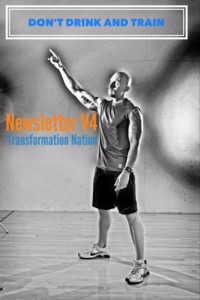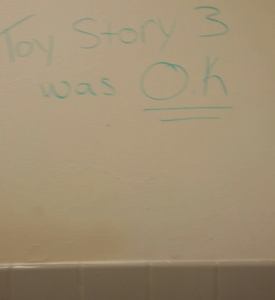By Beth Gamulka, on Mon Oct 20, 2014 at 1:30 PM ET  Dinner conversation topics in my home can vary from the serious to the mundane. My kids (all pre-teens and teenagers) still communicate with me in more than a series of grunts. They acknowledge each other’s existence. It’s fantastic. Imagine my chagrin when we spent a whole meal discussing their fears for my well-being. My kids are pretty aware of the world around them. They listen to and read the news. They also have a clear understanding of what I do every day. So, when they hear about health care workers who have contracted Ebola in Texas, it is no giant leap for them to worry about and for me. As a hospital-based health care worker in a city rich with citizens who hail from hundreds of countries, it is likely that there will be many Ebola scares close to home in the near future. I practice in a hospital that was at the epicenter of the SARS outbreak in Toronto in 2003. While my children were too young at the time to remember it, they have heard about it and have even seen the movies-of-the-week that were based on it. Dinner conversation topics in my home can vary from the serious to the mundane. My kids (all pre-teens and teenagers) still communicate with me in more than a series of grunts. They acknowledge each other’s existence. It’s fantastic. Imagine my chagrin when we spent a whole meal discussing their fears for my well-being. My kids are pretty aware of the world around them. They listen to and read the news. They also have a clear understanding of what I do every day. So, when they hear about health care workers who have contracted Ebola in Texas, it is no giant leap for them to worry about and for me. As a hospital-based health care worker in a city rich with citizens who hail from hundreds of countries, it is likely that there will be many Ebola scares close to home in the near future. I practice in a hospital that was at the epicenter of the SARS outbreak in Toronto in 2003. While my children were too young at the time to remember it, they have heard about it and have even seen the movies-of-the-week that were based on it.
I remember the first child who had contracted SARS from family members who had already succumbed to the disease. When that child was admitted to hospital, my colleagues and I (all young professionals with young children, except for one single guy) looked at one another and tried to decide who would don the N-95 mask, gown, face-shield and gloves and care for the patient. Those early days in the outbreak were filled with many questions but few answers. We were faced every day with new instructions and new rules about how we were supposed to be screened, to protect ourselves and to care for our patients. One of my colleagues, the unmarried physician in our group, selflessly volunteered to expose himself to that first patient so that the rest of us could minimize our risk to ourselves and to our young families. We all remained healthy throughout the SARS outbreak, which lasted for several months but the memories of working in those conditions are still quite vivid.
Now, my children are old enough to understand what might happen with Ebola. They are concerned for me, and for the fallibility of PPE (personal protective equipment). They ask me about resource allocation, too. What will happen if there are not enough ventilators or ICU beds for all the sick patients? Who will decide who receives intensive care and how will those decisions be made? Are all states and provinces approaching preparedness in a consistent fashion?
These are all excellent questions. Unfortunately, no one yet has those answers. The real risk of an Ebola outbreak in North America is low. However, past experience suggests that we will have to be prepared so that if there is an outbreak, we will have the answers to my kids’ questions before we need them.
By John Y. Brown III, on Mon Oct 20, 2014 at 12:00 PM ET  My Monday morning My Monday morning
My world
My way
My terms
My bed…
Master of my universe
Then the alarm goes off
And all that’s left is
My alarm clock
By Saul Kaplan, on Mon Oct 20, 2014 at 8:30 AM ET  This is the third of a 10-article series of conversations published on the Time website, authored by myself and Nicha Ratana, with transformational leaders who will be storytellers at the BIF10 Collaborative Innovation Summit in Providence, RI. This is the third of a 10-article series of conversations published on the Time website, authored by myself and Nicha Ratana, with transformational leaders who will be storytellers at the BIF10 Collaborative Innovation Summit in Providence, RI.
“If you’re in business today, you’re running for office every day.” So says Alan Webber, co-founder of Fast Company magazine and a progressive Democrat who recently conceded his bid for governor of New Mexico.
Webber promoted an education-focused, pro-jobs campaign platform that leveraged his background in social business. The only candidate in the race not formerly involved in the state’s government, his supporters valued his outsider perspective and resistance to local political cynicism.
Running for office may seem to be a tricky venture for a media entrepreneur with a blunt, provocative journalistic record. But to Webber, running for governor was a natural culmination of his career-long mission to understand and transform broken systems.
Webber’s talk at BIF9, last year’s Collaborative Innovation Summit, articulated the broken place he sees now in both business and politics. In both systems, he claimed, “something is wrong about the way we’re aspiring to success.”
In his talk, Webber recounted an article by entrepreneur Mark Fuller, published in Fast Company’s first issue. “It asked, ‘How did the United States manage to win every battle in Vietnam, and lose the War?’— because they lost track of the point of the exercise.”
To Webber, the same is true for American business and politics. “Every 10 years, we drive the economic car into the ditch,” Webber said, “It keeps happening because our systems are designed to create this outcome.”
At the BIF9 Summit, Webber’s ideas were welcomed. “Some conferences give you a feeling that all the talks were written by the same person, memorized, and then delivered as a Forrest Gump-ian box of chocolates,” he reflects. “The BIF Summit is different. The design specs are human-centric. With BIF storytellers, you get the feeling that there’s actual alignment between who they are and what they’re doing.”
Webber and fellow Fast Company co-founder Bill Taylor used their magazine to rally for a major cultural shift in business, a phenomenon that Webber referred to in his BIF talk as “the disappearance of the man in the grey flannel suit.” The concept of the company man who put himself aside so that he could put food on the table was no longer sustainable.
“Work is too important to be alienated from your sense of self,” Webber maintained.
Fast Company used the conceit of the worker drone to criticize America’s toxic work culture. The magazine aligned itself against an economy built upon principles of pure financial return at the expense of sound business practices.
“Fast Company wasn’t a business magazine,” Webber notes. “We had a business model, but we also had a philosophical agenda and a political sensibility about what makes for a good life. It wasn’t articles; it was a curriculum.”
Alan Webber is tough to interview.
He refuses set questions. “Let’s have a conversation,” he insists. He openly shares what he’s struggling with and compels the same. He compliments generously, but does not endorse. He has deep laughter lines.
Yet, when prompted to talk about his new home state, his eyes light up. He tells many stories: of what he learned from meeting an education specialist at the local coffee shop, of listening to the stories of struggle of 16th generation Acequia stewards, of the privilege of having an audience with Pueblo heads of state.
He talks about his state’s resilience and cultural richness. “Santa Fe’s the oldest state capital in the United States, but you rarely hear about the history of Spanish exploration living at Plymouth Rock,” says the former Boston resident.
Webber claims he has no plans to disengage from public service. In his letter of concession he maintained, “It was not only a campaign to elect a candidate — it was a campaign to make an argument about New Mexico.”
The state, under the administration of Republican governor Susana Martínez, ranks 50th in the country in overall child well-being and job growth.
“When you’re number 50, you have no time to waste,” Webber says. To him, it doesn’t matter whether the case for New Mexico is made from the business, political or ethical angle “because today, they are increasingly the same.”
“Politics is not something you’d wish on your worst enemy,” Webber jokes. Yet, he also says, “I think running for governor was the right thing to do. I have met an amazing group of people through the campaign, people who’ve asked me to help them with their projects.”
He adds, “It’s a real a blessing when people think you can help them.”
The BIF Collaborative Innovation Summit combines 30 brilliant storytellers with more than 400 innovation junkies in a two-day storytelling jam, featuring tales of personal discovery and transformation that spark real connection and “random collisions of unusual suspects.”
By John Y. Brown III, on Fri Oct 17, 2014 at 12:00 PM ET  I just spoke to the guy who is helping us install a new shower in our hone and, after giving him the credit card number and paying, I thanked him for all his time and assistance. I just spoke to the guy who is helping us install a new shower in our hone and, after giving him the credit card number and paying, I thanked him for all his time and assistance.
He thanked me and said to keep him posted and let him know how the installation goes and if we are happy with everything.
I thanked him again and said, “When we get everything finished we’d love to have you come over to see it and take a shower in it yourself.”
I love being an over-friendly Southerner –and joking around with people.
By Julie Rath, on Fri Oct 17, 2014 at 8:30 AM ET I interviewed some of my most successful, smart, and gorgeous girlfriends to find out how important it really is to them for a guy to pay attention to his image and style, and I thought you might be interested in watching what they had to say. The first of these three interviews is with Sara Davidson, business strategist and marketing maven.
Click here or on the image below to watch our interview. You’ll hear what turns her on and off, and the one thing a guy did that completely changed the way she looked at him (and as a result she couldn’t keep her hands off of him).

After you’re done watching the interview, make sure you take my style quiz to see how you rate on a scale of 1 to 10.
By John Y. Brown III, on Thu Oct 16, 2014 at 12:00 PM ET  When you lie down with dogs… Is it better to be a deep or shallow person?
I used to be shallow for a deep person
But as I have matured I feel like I have become deep for a shallow person
 And I think I like the deep part of the shallow end of the pool better. You don’t have to tread water…and you get to take off the water wings. And I think I like the deep part of the shallow end of the pool better. You don’t have to tread water…and you get to take off the water wings.
By Josh Bowen, on Thu Oct 16, 2014 at 8:30 AM ET  A common question I get from clients, “can I drink alcohol and still get results?” A common question I get from clients, “can I drink alcohol and still get results?”
As with most questions I receive, there is no yes or no answer, it simply just depends. It depends on how much and how much of what you are drinking.
I am a firm believer in moderation and balance. I believe you can achieve your fitness goals and still have a drink or two, here and there. So for argument sake lets define moderation; no more than one alcoholic drink for women and no more than two for men, per day. An alcoholic drink is defined as 4 oz. of an “adult” beverage.
So JB what are the drawbacks to drinking alcohol as it relates to my workout?
Glad you asked, here are 5 side effects to drinking alcohol and working out:
Dehydration
Muscles are composed of 75% water.Inadequate water intake zaps the muscles of strength. When alcohol is in the system the kidneys must filter large amounts of water to flush the alcohol out of your system, causing dehydration. Too combat this, after drinking alcohol drink 32 oz. of water. This should help with the dehydration and lessen your hangover.
Fat Storage
Although alcohol is a carbohydrate, it does not convert to glucose like most carbohydrates but becomes a fatty acid and is more likely to be stored as fat. If you exercise and drink alcohol, it causes your fat metabolism to be put “on hold.” The caloric content of alcohol adds up to seven calories per gram. A 12-oz. beer, on average, contains around 146 calories, 13 g. of carbohydrate and a few vitamins and minerals. A shot of gin has around 110 calories.
Vitamin Depletion
Alcohol depletes vitamins A, B, C, calcium, zinc and phosphorus.This nutrients are vital in the retention and increase of your muscle. To combat this depletion, if you are going to drink take a multi-vitamin prior too. This will help decrease the depletion because you are taking in excess nutrients.
Lowered Testosterone
Alcohol increases estrogen in men, thus lowering the free testosterone in the body. Testosterone helps build muscle tissue.
Beer Belly
This could go with fat storage but a common characteristic of a man or woman that drinks too much beer is the beer belly. Because alcohol is a toxin, the liver must filter it out of the body. If taken in excess over the course of years the liver will secret a fluid that will build up in the abdominal wall. Causing the dreaded beer belly.
2 “Healthier” Options
There are better options to drink than others. Again, these options are lower in calories but anything in excess, regardless of caloric value, will derail your progress in body transformation.
Wine
Is the most friendly of all alcoholic beverages, averaging just 20 calories per ounce for most wines. Check below!
| Wine |
Calories Per Ounce |
Carbs |
Per 5-oz Serving |
| Chardonnay |
20 |
0.4 g |
100 calories, 2 g carbs |
| Pinot Grigio |
20 |
0.4 g |
100 calories, 2 g carbs |
| Zinfandel® White Wine |
20 |
0.4 g |
100 calories, 2 g carbs |
| Cabernet Sauvignon |
20 |
0.8 g |
100 calories, 4 g carbs |
| Merlot Red Wine |
20 |
0.8 g |
100 calories, 4 g carbs |
“Hard” Liquor
Not exactly sure why it would be called hard but these are more caloric intensive than wine but not as bad as liquors, mixed drinks or some beers. Refrain from adding sodas to the mix or the calories will go up.
| Hard Liquor |
Calories Per Ounce |
Carbs |
Per 1.5-oz Serving |
| Vermouth |
32 |
0.2 g |
64 calories, 0.4 g carbs |
| Coconut Rum |
51 |
5.3 g |
77 calories, 8 g carbs |
| Beefeater® Gin |
65 |
0 g |
98 calories, 0 g carbs |
| Rye Whiskey |
69 |
0 g |
104 calories, 0 g carbs |
| Scotch Whiskey |
69 |
0 g |
104 calories, 0 g carbs |
| White Rum |
69 |
0 g |
104 calories, 0 g carbs |
| Vodka |
69 |
0 g |
104 calories, 0 g carbs |
| Cognac |
69 |
2 g |
104 calories, 3 g carbs |
| Tequila |
69 |
5.3 g |
104 calories, 8 g carbs |
| Gilbey’s® Gin |
79 |
0 g |
119 calories, 0 g carbs |
A life with synergy requires balance and drinking alcohol has its benefits but also its drawbacks. Anything in moderation will be fine, the probably lies in excess and will lead to lower muscle tissue, increased bodyfat and lower quality of life.
By Will Meyerhofer, on Wed Oct 15, 2014 at 1:30 PM ET  It is remarkable how often I listen to clients worrying themselves sick over people who don’t even seem to like them. It is remarkable how often I listen to clients worrying themselves sick over people who don’t even seem to like them.
The other day a woman complained she didn’t know how to handle a guy who’d treated her like something under his shoe. He didn’t call, didn’t pay attention to her life or any of the issues she was facing at work or with her family. He pretty much just talked, and cared, about himself.
But she couldn’t seem to get over him.
He called again, wanted to get together.
“Should I see him?” She asked me.
 The answer was obvious. Every time she’d given in – and it had happened plenty – the same pattern played out. He was considerate and nice for a week or two, then went back to the same old routine of ignoring her needs and focusing entirely on himself. The answer was obvious. Every time she’d given in – and it had happened plenty – the same pattern played out. He was considerate and nice for a week or two, then went back to the same old routine of ignoring her needs and focusing entirely on himself.
I told her she needed greater wisdom than I could summon. She needed to listen to Barry Manilow.
You probably have some sort of opinion regarding the creative output of Barry Manilow – which is to say you probably either love his music or you hate it.
If you love it – really, really love it – then you’re a “fanilow,” a Barry Manilow super-fan.
 A friend of mine visited Las Vegas last year with his two elderly aunts, and – mostly to humor them – went to see Barry Manilow play at one of the big resort hotels. He posted his response up on Facebook: “I’m a fanilow!” A friend of mine visited Las Vegas last year with his two elderly aunts, and – mostly to humor them – went to see Barry Manilow play at one of the big resort hotels. He posted his response up on Facebook: “I’m a fanilow!”
He was wowed – like plenty of people who actually go to see this hard-working, talented performer who gives everything he’s got on stage.
Barry loves his fanilows. He thanks them, he signs their programs, he tells them again and again that he owes them everything, that they’re the reason he can keep on performing and doing what he loves. They love him – and he loves them right back.
On the other hand, I read an interview a few years back where the reporter got a bit snarky with Barry, hinting that his music was widely dismissed as camp, mere sugary trash. I don’t remember Barry’s precise words, but he said something like this: “I take my work very seriously, and if you aren’t going to treat it with respect, I’ll end this interview right now.”
He had a point, and he made it. Barry Manilow does what he loves, and there are many people who celebrate him for it. He doesn’t need the haters.

You can learn from Barry Manilow.
Find your fanilows – and hold them tight. Cherish them. Celebrate them as they celebrate you. Those are the people who deserve you in their lives.
The haters? The critics? The people who take you for granted or tear you down? Push them away.
There are plenty of people in this world. You can find some fanilows – starting with yourself. No one loves Barry’s music more than Barry – and that’s exactly how it should be.
 Here’s a good ground rule for dating (I call it “the Manilow Rule”): Don’t even consider a relationship with anyone who isn’t a fanilow – your fanilow. If the other person isn’t excited – thrilled – ecstatic –jumping up and down with enthusiasm about a date with you, push him aside and find someone who is. Here’s a good ground rule for dating (I call it “the Manilow Rule”): Don’t even consider a relationship with anyone who isn’t a fanilow – your fanilow. If the other person isn’t excited – thrilled – ecstatic –jumping up and down with enthusiasm about a date with you, push him aside and find someone who is.
Be your own biggest fan – and start a fan club.
If you’re hoping he’ll call, he’s not a fanilow. A fan doesn’t leave you wondering – he lets you know you know he’s dying to see you. That’s the guy for you.
Does surrounding yourself with fanilows sound a bit dangerous? A bit too easy? Would it turn you into a self-satisfied egomaniac, unwilling to hear criticism?
It doesn’t have to. I’m sure Barry reads the critics, and he ponders their suggestions. He takes everything into consideration – then he makes his calls, his own decisions about his music and his performances.
 You can have a suggestion box, too. And you can invite people to write down their suggestions and stick them in. And you can read them, and consider each and every one on its merits. If they have a problem with you, they can say so, and you’ll listen. You can have a suggestion box, too. And you can invite people to write down their suggestions and stick them in. And you can read them, and consider each and every one on its merits. If they have a problem with you, they can say so, and you’ll listen.
But at the end of the day, you have to make your own calls. You decide who you want to be – your most authentic, best self.
Then you go out into the world, and sort through the haters – and the fanilows.
The haters you can listen to politely, and push aside.
But the fanilows are the ones who celebrate you, and make it possible for you to see what’s best in yourself.
Be good to the fanilows. Treat them like gold.
==========
Postscript:

==========
My new book is a comic novel about a psychotherapist who falls in love with a blue alien from outer space. I guarantee pure reading pleasure: Bad Therapist: A Romance.
Please also check out The People’s Therapist’s legendary best-seller about the sad state of the legal profession: Way-Worse-Than-Being-Dentist
My first book is an unusual (and useful) introduction to the concepts underlying psychotherapy: Life is a Brief Opportunity for Joy
(In addition to Amazon.com, my books are also available on bn.com and the Apple iBookstore.)
By John Y. Brown III, on Wed Oct 15, 2014 at 12:00 PM ET
 Driving home from a conference in Nashville, TN I noticed the public restroom graffitti is notably higher brow here than I typically find in other states. Driving home from a conference in Nashville, TN I noticed the public restroom graffitti is notably higher brow here than I typically find in other states.
Part of me, upon reading this, wanted to grab a pen and scrawl in big letters, “I guess Finding Nemo is just an ‘OK’ Disney Pixar film, too, right? Wrong!”
My inner graffiti-loving self (that I thought was tamped down so deep it would never again see the light of day) almost got the best of me tonight.
What can I say? I love Pixar and Disney.
Fortunately I didn’t have a pen with me. And after counting to 10 I was able to even see that the author of this piece of graffiti had a point and that I, too, considered Toy Story 3 to be just “OK” on a lot of different levels.
 So I maturely let the graffiti comment go. So I maturely let the graffiti comment go.
Even though he was from TN.
By Lauren Mayer, on Wed Oct 15, 2014 at 8:30 AM ET It has become a disturbing trend lately for politicians to defer expressing an opinion by explaining that they aren’t an expert in whatever area is under discussion. (I’m old enough to remember when the most common use of this phrase was commercial actors saying, “I’m not a doctor – but I play one on TV!”) I’m not a scientist either, but I know enough to figure that when 97% of climate change studies attribute it directly to human activity, that’s a pretty good argument.
In fact, I’ve heard that phrase used so often lately that it has become an ‘earworm’ (a disturbingly evocative description of those songs or soundbites that get stuck in one’s head). So here’s my musical response to this over-used excuse . . .
|
The Recovering Politician Bookstore
|
 Dinner conversation topics in my home can vary from the serious to the mundane. My kids (all pre-teens and teenagers) still communicate with me in more than a series of grunts. They acknowledge each other’s existence. It’s fantastic. Imagine my chagrin when we spent a whole meal discussing their fears for my well-being. My kids are pretty aware of the world around them. They listen to and read the news. They also have a clear understanding of what I do every day. So, when they hear about health care workers who have contracted Ebola in Texas, it is no giant leap for them to worry about and for me. As a hospital-based health care worker in a city rich with citizens who hail from hundreds of countries, it is likely that there will be many Ebola scares close to home in the near future. I practice in a hospital that was at the epicenter of the SARS outbreak in Toronto in 2003. While my children were too young at the time to remember it, they have heard about it and have even seen the movies-of-the-week that were based on it.
Dinner conversation topics in my home can vary from the serious to the mundane. My kids (all pre-teens and teenagers) still communicate with me in more than a series of grunts. They acknowledge each other’s existence. It’s fantastic. Imagine my chagrin when we spent a whole meal discussing their fears for my well-being. My kids are pretty aware of the world around them. They listen to and read the news. They also have a clear understanding of what I do every day. So, when they hear about health care workers who have contracted Ebola in Texas, it is no giant leap for them to worry about and for me. As a hospital-based health care worker in a city rich with citizens who hail from hundreds of countries, it is likely that there will be many Ebola scares close to home in the near future. I practice in a hospital that was at the epicenter of the SARS outbreak in Toronto in 2003. While my children were too young at the time to remember it, they have heard about it and have even seen the movies-of-the-week that were based on it.










 The answer was obvious. Every time she’d given in – and it had happened plenty – the same pattern played out. He was considerate and nice for a week or two, then went back to the same old routine of ignoring her needs and focusing entirely on himself.
The answer was obvious. Every time she’d given in – and it had happened plenty – the same pattern played out. He was considerate and nice for a week or two, then went back to the same old routine of ignoring her needs and focusing entirely on himself. A friend of mine visited Las Vegas last year with his two elderly aunts, and – mostly to humor them – went to see Barry Manilow play at one of the big resort hotels. He posted his response up on Facebook: “I’m a fanilow!”
A friend of mine visited Las Vegas last year with his two elderly aunts, and – mostly to humor them – went to see Barry Manilow play at one of the big resort hotels. He posted his response up on Facebook: “I’m a fanilow!”
 Here’s a good ground rule for dating (I call it “the Manilow Rule”): Don’t even consider a relationship with anyone who isn’t a fanilow – your fanilow. If the other person isn’t excited – thrilled – ecstatic –jumping up and down with enthusiasm about a date with you, push him aside and find someone who is.
Here’s a good ground rule for dating (I call it “the Manilow Rule”): Don’t even consider a relationship with anyone who isn’t a fanilow – your fanilow. If the other person isn’t excited – thrilled – ecstatic –jumping up and down with enthusiasm about a date with you, push him aside and find someone who is. You can have a suggestion box, too. And you can invite people to write down their suggestions and stick them in. And you can read them, and consider each and every one on its merits. If they have a problem with you, they can say so, and you’ll listen.
You can have a suggestion box, too. And you can invite people to write down their suggestions and stick them in. And you can read them, and consider each and every one on its merits. If they have a problem with you, they can say so, and you’ll listen.




